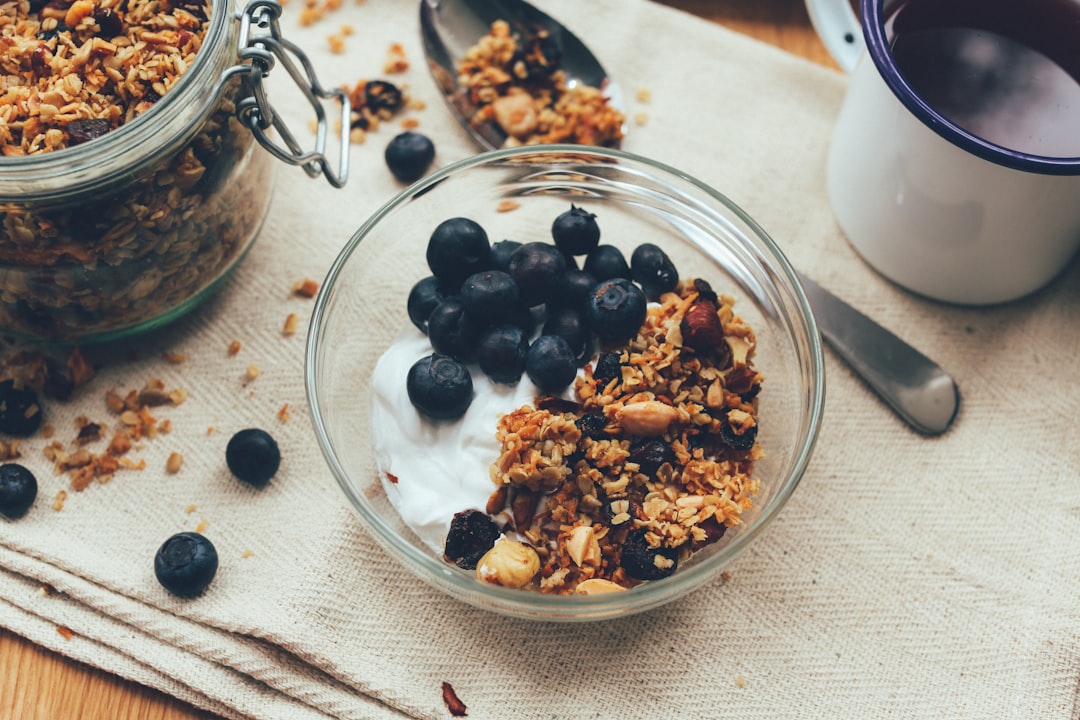You may have heard the saying, “Breakfast is the most important meal of the day.” This adage holds particular significance for the elderly, a demographic that often faces unique nutritional challenges. As you age, your body undergoes various changes that can affect your appetite, metabolism, and overall health. Skipping breakfast can exacerbate these issues, leading to a cascade of negative health outcomes.
Understanding the implications of this habit is crucial for promoting better health and well-being among older adults. In recent years, there has been a growing body of research highlighting the importance of breakfast, especially for seniors. While many people might view breakfast as a mere formality or an optional meal, it plays a vital role in maintaining energy levels and supporting cognitive function.
For the elderly, who may already be dealing with various health concerns, neglecting this meal can have far-reaching consequences. This article will explore the impact of skipping breakfast on elderly health, emphasizing the nutritional importance of this meal and offering strategies to encourage its consumption.
Key Takeaways
- Skipping breakfast can have a significant impact on the health of the elderly, affecting their nutritional intake and cognitive function.
- Elderly individuals who skip breakfast are at a higher risk of developing chronic diseases, making it crucial to encourage breakfast consumption.
- A balanced breakfast is important for elderly nutrition, providing essential nutrients and energy for the day.
- Strategies for promoting breakfast consumption in the elderly should address barriers such as appetite changes and medication schedules.
- Encouraging breakfast consumption in the elderly can lead to better overall health and well-being, making it an important focus for healthcare professionals and caregivers.
Impact of Skipping Breakfast on Elderly Health
When you skip breakfast, you may not realize the immediate effects it can have on your health. For older adults, this habit can lead to a range of issues, including fatigue, irritability, and decreased physical performance. Without the necessary fuel to start the day, your body may struggle to maintain energy levels, making it difficult to engage in daily activities or enjoy social interactions.
This lack of energy can also contribute to a sedentary lifestyle, which is particularly concerning for seniors who need to stay active to maintain their health. Moreover, skipping breakfast can disrupt your body’s natural rhythms. Your metabolism relies on regular meals to function optimally, and when you miss breakfast, it can lead to fluctuations in blood sugar levels.
For elderly individuals who may already be managing chronic conditions, such as diabetes or heart disease, these effects can be particularly detrimental.
Nutritional Importance of Breakfast for the Elderly

Breakfast serves as a critical opportunity to replenish your body’s nutrient stores after a night of fasting. For older adults, this meal is essential for providing vital nutrients that support overall health. A balanced breakfast can help you meet your daily requirements for vitamins and minerals, which are crucial for maintaining bone density, muscle mass, and cognitive function.
By consuming a nutritious breakfast, you set a positive tone for the rest of the day. Incorporating a variety of food groups into your breakfast can enhance its nutritional value.
For instance, oatmeal topped with fresh berries and a sprinkle of nuts not only provides fiber but also offers antioxidants and healthy fats that are beneficial for heart health. By prioritizing a well-rounded breakfast, you can ensure that your body receives the essential nutrients it needs to thrive.
Risks of Skipping Breakfast for the Elderly
| Health Risk | Impact |
|---|---|
| Malnutrition | Decreased intake of essential nutrients |
| Increased Falls | Reduced energy and strength |
| Cognitive Impairment | Reduced mental alertness and focus |
| Cardiovascular Issues | Increased risk of heart disease and stroke |
The risks associated with skipping breakfast extend beyond immediate energy levels; they can also have long-term implications for your health. Research has shown that older adults who frequently skip breakfast may be at an increased risk for various health issues. For example, studies indicate that this habit is linked to higher rates of obesity and metabolic syndrome, conditions that can lead to serious complications such as heart disease and diabetes.
Additionally, skipping breakfast can contribute to poor dietary choices later in the day. When you miss this important meal, you may find yourself feeling excessively hungry by lunchtime, leading to overeating or opting for unhealthy convenience foods. This pattern can create a cycle of poor nutrition that is difficult to break.
For seniors who are already at risk for malnutrition due to factors like decreased appetite or difficulty preparing meals, skipping breakfast can exacerbate these challenges.
Effects of Skipping Breakfast on Cognitive Function
Cognitive function is another area significantly impacted by skipping breakfast. As you age, maintaining mental acuity becomes increasingly important for overall quality of life. Research suggests that regular breakfast consumption is associated with better cognitive performance in older adults.
When you skip this meal, you may experience difficulties with concentration, memory retention, and problem-solving skills. The brain requires glucose as its primary source of energy, and breakfast provides an essential boost after hours of fasting overnight. Without this fuel, cognitive processes may slow down, leading to feelings of mental fog or confusion.
For seniors who are already navigating the complexities of aging, such as managing medications or maintaining social connections, these cognitive challenges can be particularly frustrating and isolating.
Relationship between Skipping Breakfast and Chronic Diseases in the Elderly

The relationship between skipping breakfast and chronic diseases is an area of growing concern among healthcare professionals. Numerous studies have indicated that older adults who frequently skip breakfast are at a higher risk for developing chronic conditions such as hypertension, type 2 diabetes, and cardiovascular disease. These diseases often require careful management and can significantly impact quality of life.
One possible explanation for this connection lies in the way breakfast influences metabolic health. Regularly consuming a balanced breakfast helps regulate blood sugar levels and supports healthy cholesterol profiles. When you skip this meal, you may inadvertently disrupt these processes, leading to long-term health consequences.
For seniors who are already managing chronic conditions, understanding the importance of breakfast can be a crucial step toward better health outcomes.
Strategies for Encouraging Breakfast Consumption in the Elderly
Encouraging breakfast consumption among older adults requires a multifaceted approach that addresses both practical and psychological barriers. One effective strategy is to create a pleasant breakfast environment that promotes social interaction. Sharing meals with family members or friends can make breakfast more enjoyable and motivate seniors to participate in this important ritual.
Another approach is to simplify meal preparation by providing easy-to-make options that require minimal effort. Pre-packaged healthy breakfast items or meal kits designed specifically for seniors can help alleviate the burden of cooking while ensuring that nutritious choices are readily available. Additionally, educating older adults about the benefits of breakfast through community programs or healthcare providers can reinforce its importance and encourage consistent consumption.
Importance of a Balanced Breakfast for Elderly Nutrition
A balanced breakfast is not just about eating something in the morning; it’s about making choices that nourish your body effectively. For older adults, focusing on nutrient-dense foods is essential for maintaining health and vitality. A well-rounded breakfast should include carbohydrates for energy, protein for muscle maintenance, and healthy fats for brain health.
Incorporating foods rich in fiber is also crucial for digestive health—a common concern among seniors. Whole grains like oatmeal or whole-grain toast provide fiber that aids digestion and helps regulate blood sugar levels. Pairing these with protein sources such as eggs or yogurt can create a satisfying meal that keeps you full longer and supports overall well-being.
Breakfast Options for the Elderly
When it comes to selecting breakfast options suitable for older adults, variety is key. You might consider starting your day with oatmeal topped with fresh fruit and nuts for a hearty yet nutritious meal. Alternatively, smoothies made with yogurt and leafy greens offer an easy way to pack in vitamins while being gentle on digestion.
For those who prefer savory options, scrambled eggs with vegetables or whole-grain toast with avocado can provide essential nutrients without overwhelming your palate. Additionally, incorporating snacks like Greek yogurt or cottage cheese can serve as quick breakfast alternatives when time is limited or appetite is low.
Addressing Barriers to Breakfast Consumption in the Elderly
Despite the clear benefits of eating breakfast, several barriers may prevent older adults from enjoying this meal regularly. Physical limitations such as difficulty standing for long periods or challenges with cooking can make meal preparation daunting. Addressing these barriers requires understanding individual needs and providing tailored solutions.
One effective strategy is to involve family members or caregivers in meal planning and preparation. By working together to create simple yet nutritious breakfasts, you can foster a sense of community while ensuring that older adults receive the nourishment they need. Additionally, exploring local resources such as meal delivery services or community programs focused on senior nutrition can help bridge gaps in access to healthy food options.
Promoting Breakfast for Better Elderly Health
In conclusion, promoting breakfast consumption among older adults is essential for enhancing their overall health and well-being. The impact of skipping this vital meal extends beyond immediate energy levels; it influences cognitive function, chronic disease risk, and nutritional status. By understanding these implications and implementing strategies to encourage regular breakfast consumption, you can play a significant role in improving the quality of life for seniors.
As you consider your own breakfast habits or those of loved ones in your life, remember that every small change counts. Prioritizing a balanced breakfast not only sets a positive tone for the day but also contributes to long-term health benefits that are particularly crucial as we age. By fostering an environment that values nutritious breakfasts and addressing barriers to consumption, we can collectively work towards better health outcomes for our elderly population.
Skipping breakfast can have detrimental effects on the health of elderly individuals, as it may lead to a decrease in essential nutrient intake and negatively impact cognitive function. According to an article on Explore Senior Health, maintaining a regular breakfast routine is crucial for older adults to support their overall well-being. The article highlights that breakfast provides necessary energy and nutrients that can help prevent muscle loss and maintain cognitive health, which are vital for the aging population. Therefore, ensuring that seniors have a balanced breakfast can play a significant role in promoting their long-term health and quality of life.
WATCH THIS!🧠 The Breakfast Mistake That Fuels Senior Memory Loss
FAQs
What are the potential health risks for elderly individuals who skip breakfast?
Elderly individuals who skip breakfast may be at a higher risk for malnutrition, cognitive decline, and an increased risk of chronic diseases such as diabetes and heart disease.
How does skipping breakfast affect an elderly person’s energy levels and overall well-being?
Skipping breakfast can lead to decreased energy levels, fatigue, and a negative impact on mood and cognitive function in elderly individuals.
What are some potential consequences of skipping breakfast for elderly individuals with existing health conditions?
Elderly individuals with existing health conditions such as diabetes or heart disease may experience worsened symptoms and complications from skipping breakfast, as it can disrupt blood sugar levels and increase the risk of cardiovascular issues.
Are there any specific nutritional needs that elderly individuals should consider when it comes to breakfast?
Elderly individuals should aim to include a balance of protein, healthy fats, and carbohydrates in their breakfast to support muscle mass, cognitive function, and overall health. It’s also important to consider any dietary restrictions or medications that may impact breakfast choices.
What are some healthy breakfast options for elderly individuals to consider?
Healthy breakfast options for elderly individuals may include oatmeal with nuts and fruit, yogurt with granola and berries, whole grain toast with avocado and eggs, or a smoothie with protein powder and leafy greens. It’s important to focus on nutrient-dense foods that provide essential vitamins and minerals.
